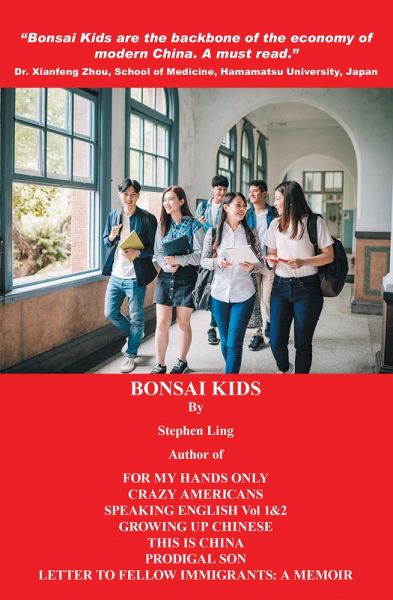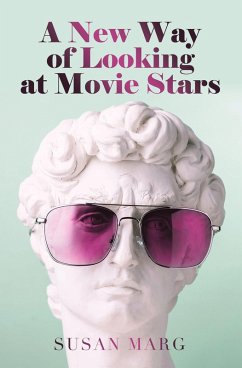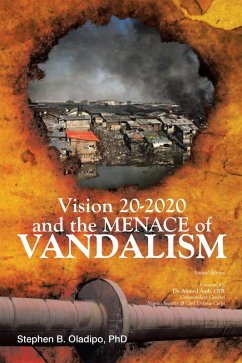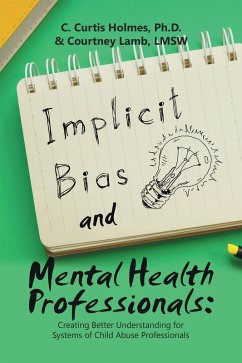
Bonsai Kids (eBook, ePUB)

PAYBACK Punkte
1 °P sammeln!
One evening at the campus in China, I was waiting at the main gate to the campus for a student to have dinner with me. It was a eureka moment for me because it was the first time I took notice of the two huge bonsai trees in elegant pots, one on either side of the gate. Suddenly, I saw something more than those two elegant potted trees. They reminded me of the young men and women under my care in my daily classes; their thinking, behaviors, mindsets, personal interactions, class participation, community activities, likes and dislikes, and habits were expected and predictable because of years o...
One evening at the campus in China, I was waiting at the main gate to the campus for a student to have dinner with me. It was a eureka moment for me because it was the first time I took notice of the two huge bonsai trees in elegant pots, one on either side of the gate. Suddenly, I saw something more than those two elegant potted trees. They reminded me of the young men and women under my care in my daily classes; their thinking, behaviors, mindsets, personal interactions, class participation, community activities, likes and dislikes, and habits were expected and predictable because of years of trimming, pruning, twisting, and shaping by their parents to be who they are today. They are the bonsai kids! Here are some of their voices. "Meanwhile, I got a five-thousand-Australian-dollar scholarship from the university that I applied to. I then managed to persuade my parents to support me. I was lucky because my parents said yes to me because they did not want to let me down. Now I am studying for a master's degree at the Blue Mountains International Hotel Management School in Australia. In the words of Steve, "Do what you have to do to get where you want to be" (Jay Qi-long Han). "I studied very hard because I wanted to become a doctor. I wanted to help my mother because she is not a healthy person. I was able to enter Chongqing Three Gorges Medical College. I wanted a better future for myself and my family" (Michael Qiao Jia). "To me, the key to success is one's ability and willingness to adapt to new possibilities in life and also to do what you have to do to get where you want to go, even if that meant giving up my PhD in transportation engineering and pursuing a new dream, leading me to Amazon in Seattle, Washington State" (Duan Xi). "Now looking back, I don't know how I came along nor how I will go in the future. But I think it's good to keep an active attitude. I went to teach in a college in Guangzhou after finishing my postgraduate program. And three years later, I successfully applied for the PhD program of the Chinese University of Hong Kong. This is where I am" (Minwei Ai).
Dieser Download kann aus rechtlichen Gründen nur mit Rechnungsadresse in A, D ausgeliefert werden.













